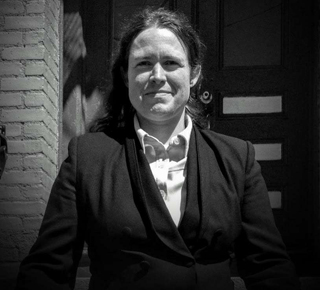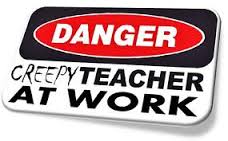Rafe Esquith, arguably the best teacher in America, was fired for being “inappropriate” with students. At no point was he accused of doing anything illegal. Now, after the termination details have been released, people are asking what is the relationship between a “creepy” and a dangerous teacher?
Parents always say, “I don’t trust my kids with anyone I don’t know”. While this is better than saying “I trust my kids with anyone”, it implies that just getting to know someone reveals whether or not they will sexually abuse your child. It’s not that simple. Without any training about child sexual abuse, the odds of meeting someone and saying “wow, this person will sexually abuse a child” are small. With extensive training, there is still no guarantee you will be able to spot a predator when you meet one. But training can teach you about child sex abuse, about abusers, and about the “grooming” process.
Child sexual abuse changes a child’s entire life the moment it happens, yet it takes survivors an average of 21 years before they can talk about it. The only way someone can have so much control over someone they hurt so much is with heavy-duty manipulation. The process sex offenders use to prepare their victims for abuse and for keeping their secret is called “grooming”. Part of the process is the abuser making themselves a significant part of the life of their chosen prey, ensuring there is a genuine emotional bond there. This makes the victim complacent to the demands of their would-be abuser. Abusers often desensitize their victim to touch and to rule-breaking. Desensitizing the child to touch enables the abuser to eventually, slowly, advance from non-sexual touches to sexual touches. Desensitizing the child to rule-breaking means the adult has something they can use to encourage the child to keep their secret- if the child tells about the adult’s misdeeds, the adult can tell about the child’s. Small children cannot distinguish between different degrees of misbehavior, and with older children alcohol, drugs and pornography are often used. Alcohol and drugs are things kids can experience significant penalties for using, and also are likely to diminish their inhibitions or render them unconscious. Pornography is likely to elicit a sexual response from a child, that an abuser can use to further justify their abuse (“she wanted it”).
Training can also illuminate some of the complexities about adults who sexually abuse children- they may really enjoy the company of children, even ones they don’t sexually abuse. They may be very good with children. They are often described as “very nice”, and “trustworthy”. They understand our culture’s beliefs around child sexual abuse and may have conflicted feelings about their sexual attraction towards children, at least for a period of time. And they often have adult sexual partners.
Grooming can be spotted by people trained to recognize it. Sometimes, abnormalities in an adult’s understanding of adult-child relationships and sexuality can be spotted. These are things that are not and cannot be illegal. But well-designed policies that prohibit teachers and staff from major “grooming” behaviors can protect children. This is how the LA Unified School justified firing Rafe Esquith, and the termination documents contained many, many accounts of Rafe “grooming” his victims. There were many emails making it abundantly clear he was sexually attracted to many of the girl students (none of them were ever over the age of 14). And one haunting account of a student who he spent huge sums of money on, who he clearly thought owed him something.
What is a parent to do when they have a nagging feeling about someone in their child’s life? They need to keep a few things in mind:
—– Child sexual abuse is very common, and befalls about 20% of American children
—– 90% of sex offenders never get convicted, so background checks, while important, are of limited use
—– Child sexual abuse is one of the ten Adverse Childhood Experiences (ACEs) that causes children permanent harm throughout their lives. Poor education, lack of role models, etc, do not cause the kind of damage that ACEs do. In other words, there is nothing someone can contribute to a child’s life that justifies placing the child at genuine risk of sexual abuse.
A “nagging feeling”, or vague idea that someone is “creepy” may not warrant a call to the police if there is no disclosure or evidence of abuse. But it is a perfectly good reason to keep someone away from your child.
All schools should have policies aimed at protecting children in their care from sexual abuse, and they should contain standard provisions such as:
—– all staff should be trained in an evidence-based curriculum like Darkness 2 Light’s Stewards of Children Training
—– strict limits on electronic communication between teachers and students. Teachers should not give out their personal phone numbers and email addresses to students, they should not “friend” students on social media, etc.
—– teachers should not give money to students. Teachers may identify situations where students truly need money for school supplies or other essentials, but the teacher should not be allowed to privately give money to a student or their family.
—– teachers should not be allowed to interact with children off-campus unless they are doing so as part of a sanctioned activity. During off-campus activities, there should be policies to protect children from the biggest risk of them all…
—–There should be no one-child, one-adult situations behind closed doors.
Rafe was fired for violating the school district’s rules designed to protect students against sexual abuse. The fact he was fired for breaking these rules, not for sexually abusing students, shows the rules can work. Yes, Rafe Esquith did a lot of good for a lot of students. But he clearly wanted to do things to some that would harm them for the rest of their lives. Good policies appear to have kept that from happening. And that’s progress.

Melanie Blow
Executive Director, Stop Abuse Campaign
A survivor of incest, psychological abuse and a host of other childhood trauma, Melanie now uses her talents to prevent Adverse Childhood Experiences. Melanie has over a decade of legislative advocacy regarding children’s issues, and she has been published in newspapers, magazines and blogs all across the country.
Melanie has an ACE score of 6.
